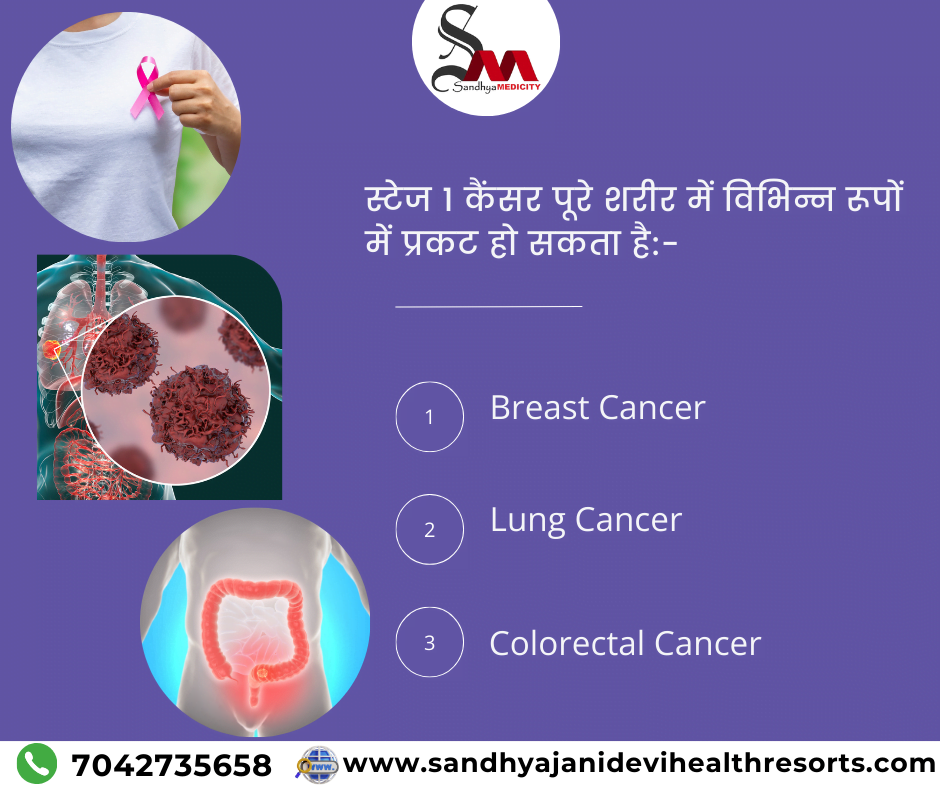Welcome back to our blog, where we dive deep into the world of health to understand what is Stage 1 Cancer and help you understand the complexities of various medical conditions. We will discuss a topic that affects millions of people around the world
Join me as we unravel the complexities of this early stage of cancer and provide you with a wealth of knowledge that will enable you to undertake this journey with confidence.
Understanding Cancer and the Stages
Before we learn about stage 1 cancer, let us first have a clear understanding of what cancer is and how it progresses. Cancer is a complex class of diseases characterized by the uncontrolled growth and spread of abnormal cells. These cells have the ability to invade and destroy neighboring tissues and can metastasize to other parts of the body if not treated.
Doctors classify cancer into different stages to help make treatment decisions and provide prognosis. Stage 1 cancer is the earliest detectable stage, where the cancer is confined to its original site and has not yet spread to nearby lymph nodes or other organs. Detecting cancer at this stage greatly increases the chances of successful treatment and recovery.

Examples of Stage 1 Cancer
Stage 1 cancer can appear in a variety of forms throughout the body. Let us see some examples to show its expression in different organs:
- Breast Cancer:
Stage 1 breast cancer is characterized by the presence of cancer cells within the breast tissue. At this stage, the tumor is generally small in size and has not spread beyond the breast or nearby lymph nodes. - Lung Cancer:
In the case of lung cancer, stage 1 refers to a small, localized tumor that has not yet invaded nearby tissues or spread to lymph nodes. Early detection is important for successful treatment. - Colorectal Cancer:
Stage 1 colorectal cancer is found only in the innermost layer of the colon or rectum. It has not grown into deeper layers or spread to nearby lymph nodes. Colonoscopy is effective in detecting this stage of cancer.
Symptoms and Diagnosis
Recognizing the symptoms and getting an early diagnosis greatly increases the chances of successfully treating stage 1 cancer. However, it is important to note that symptoms may vary depending on the type of cancer. Here are some common signs to be aware of:
- Unexplained weight loss
- Fatigue and weakness
- Changes in skin moles or warts
- Persistent cough or hoarseness
- Blood in urine or stool
To diagnose stage 1 cancer, your doctor may use a variety of diagnostic tools, including imaging tests such as X-rays, CT scans, MRIs, or mammograms for breast cancer. Additionally, they may perform a biopsy, where a small sample of tissue is removed and examined under a microscope for the presence of abnormal cells.
Treatment and Diagnosis
When stage 1 cancer is diagnosed, a tailored treatment plan is created based on the nature and location of the cancer. Let’s explore some common treatment options:
- Surgery:
Surgical removal of the tumor and surrounding tissue is often the primary treatment for many stage 1 cancers, such as early breast or colorectal cancer. The goal is to eliminate cancer cells while preserving organ function. - Radiation Therapy:
Radiation therapy involves using high-energy rays to destroy cancer cells. It is usually used in cases where surgery alone may not suffice or may not be sufficient to eliminate any residual cancer cells. - Chemotherapy:
Although used less frequently in stage 1 cancer, chemotherapy may still be recommended in some cases to target any potentially microscopic cancer cells that may have spread beyond the primary site.
The prognosis for stage 1 cancer is generally promising, with a high survival rate. Timely detection and appropriate treatment significantly increases the chances of complete remission and long-term recovery. Regular follow-up with health care professionals is necessary to monitor any signs of recurrence or possible progression.
Conclusion:-
Our comprehensive search for stage 1 cancer. Remember, knowledge is power when it comes to understanding and dealing with medical conditions. Early detection is important to fight cancer effectively, so be alert and proactive about your health.

